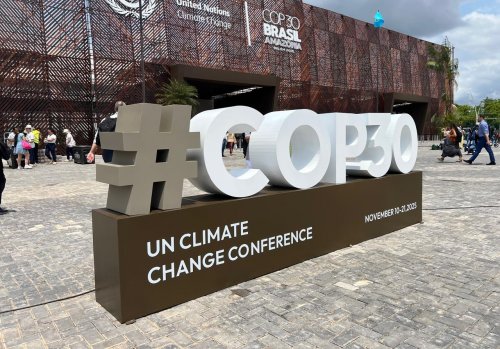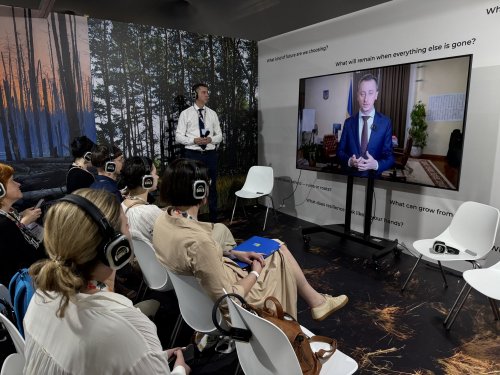Experts have questioned the effectiveness of the immediate UN climate change summits, despite significant progress, considering the need to reach consensus and focus on the process rather than on real actions.
Euronews writes about criticism of the COP format and possible alternatives for solving climate change issues.
The interruption between the historical goal of limiting global warming to 1.5°C, as predicted by the Parisian climate change, and the current reality, as the world rapidly approaches the second half of the year, has led to That a lot of people were disappointed at the recent UN climate conferences.
These experts are destroying nutrition, which is the climatic conditions of the smallest maydan or the smallest level organized for the implementation of the necessary scale of action.
"I just wish more countries and more civil society would take a step back and really look carefully at whether this is going to deliver what we need," says Anthony Burke, a professor of environmental policy.
While the COP remains important, many believe that other initiatives, particularly local or regional, are needed for faster action.
Here are the main considerations "for" and "against" the UN climate conference, which are discussed by experts.
Arguments "for":
- International consensus.
The COP involves all 197 signatory countries of the Paris Agreement, which makes it possible to make decisions with unique legitimacy.
- Equality in voting.
Countries, regardless of size or economic power, have an equal voice, allowing small island states to influence outcomes.
"While it's frustrating, I usually tell people that this is really the only process we have. That we can have our say and not feel like we're being pushed aside," says Mihai Robertson, the alliance's senior finance negotiator. of Small Island States (AOSIS).
- Signing of important agreements.
The COP has helped conclude key international agreements, such as the Paris Agreement, and created funds such as the loss and damage fund for climate-vulnerable countries.
- International cooperation.
Without such conferences, global cooperation could be even more fragmented, which would significantly complicate the fight against climate change.
- Supervision and pressure.
According to the Paris Agreement, countries must conduct a global analysis every 5 years and report on their progress in achieving targets for reducing greenhouse gas emissions. According to Professor Burke, this is a great opportunity for peer pressure and analysis, but the 2023 report showed that the world has not done well enough to meet the 1.5°C challenge.
Arguments "against":
- The slowness of the process.
The requirement for consensus inhibits decision-making because the process depends on the least interested or slowest participants.
"It's usually frustrating because [...] you have to move at the pace of the slowest person," says Robertson.
- Excessive influence of lobbyists.
A large number of representatives of the fossil fuel industry (a record at COP28 — 2,456 lobbyists) reduces the effectiveness of conferences.
- Focus on the process, not the action.
A lot of time is spent on establishing rules and procedures rather than concrete actions and results.
"It's as if the government told its citizens exactly when and how to fill out their tax returns, but left it up to them to decide how much tax, if any, they will pay," says former British diplomat Simon Sharp.
According to him, as a result, we see a system of unilateral actions disguised as a multilateral process, which is why cooperation is ineffective.
- Low responsibility.
A system where countries independently determine their climate goals does not guarantee real commitments or actions.
- Alternative models may be more effective.
Many experts believe that smaller deals focused on specific sectors, from agriculture to coal and forestry, could be more effective.
- Uneven progress.
Developed countries often fail to provide the necessary support to countries most affected by climate change, which is disappointing.
As EcoPolitic previously reported, the new global goal of climate finance will be the central theme of climate summit COP29. We also talked about plans and expectations of the Ministry of Environment regarding the 2024 UN climate conference.




